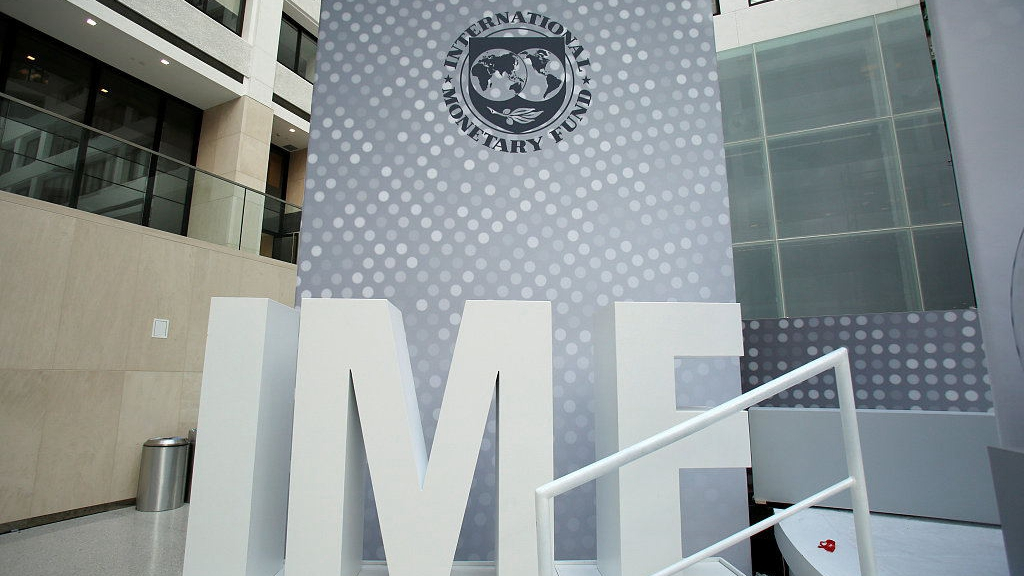

For more than a decade, Christine Lagarde has occupied a prominent spot in the global financial architecture.
Her rise to international fame began in 2007 as the stylish finance minister of France, followed four years later by her election as managing director of the International Monetary Fund (IMF). Now she is poised to become president of the European Central Bank (ECB).
In each case, Lagarde, 63, is the first woman to hold the position, taking over at every stage in uncertain economic times.
What makes her rise even more remarkable is that she is neither an economist nor a trained banker.
Analysts say Lagarde's enormous political and diplomatic skills have helped her to successfully navigate the male-dominated field in which she serves as well as negotiate the crises that have come with the territory as of late.
"What has driven me in each of these roles is a determination to serve the public interest and to deliver on the justified expectations of the people, mindful of the profound impact the decisions of public institutions can have on many people’s lives," she said in remarks to the economic and monetary affairs committee of the European Parliament on September 4 that reflected her political path.
At the IMF, the global lender to governments of last resort, Lagarde tried to soften the organization's image as a dispenser of harsh fiscal austerity. She has also spoken of her focus on addressing rising inequality, tackling climate change, and promoting fairer and more inclusive growth.

The IMF faces calls for governance reforms to give more say to emerging economies. /VCG Photo
On her last official day in office, September 12, she reiterated that vision. "Our concern is always for the people," she claimed. "That is why we always emphasize fairness and protection of the most vulnerable people in the society."
Has she succeeded? Edwin Truman, an American economist specializing in international financial institutions, is willing to give her a passing grade.
Credibility restored
"No institution can be successful without an effective leader, and no leader can be successful without a dedicated staff. Lagarde was an effective leader of a high-quality staff and a fast learner," the senior fellow at the Peterson Institute for International Economics wrote in July. "Lagarde leaves the Fund a stronger institution than it was in 2011."
However, Truman added that the IMF's vulnerability has increased. "The principal challenge is that in a more multipolar world, member countries, the United States being the prime but not only example, have increasingly turned away from respecting the shared value of international cooperation and supporting international institutions," he said.
She certainly managed to restore the Fund's reputation after the tenure of her disgraced predecessor Dominique Strauss-Kahn. She has herself weathered her own scandal – escaping punishment after conviction in 2016 on negligence charges over a state payout made in 2008 while she was the finance minister.

IMF managing-director Christine Lagarde (L) speaks with president of the European Central Bank Mario Draghi during a G20 finance ministers meeting in Chengdu, southwest China's Sichuan Province, July 24, 2016. Lagarde will succeed Mario Draghi in November 2019. /VCG Photo
Some critics are nevertheless withholding a verdict on Lagarde's stewardship because the IMF faces a rocky time in debt-ridden Argentina, which received the largest-ever bailout in the Washington-based institution's history of 57 billion U.S. dollars in 2018.
As the main economic indicators in Argentina show no signs of improvement, there is concern that the agreement may end in failure.
Lagarde is not fazed by the criticism, insisting that the IMF had "to go big" because of the enormity of the challenge and the absence at the time of others willing to invest in the recovery process.
In parts of the developing world, the IMF remains largely unloved. Speaking in July, Mexico's left-wing president Andres Manuel Lopez Obrador said the organization should apologize for its record of prescribing failed "neo-liberal" policies to emerging economies.
BRI welcomed
And Delisle Worrell, a member of the Bretton Woods Committee and a former governor of the Barbados central bank, said in an article published two days before Lagarde's departure, "Not only is the IMF the last resort of governments whose economic policies have failed; all too often, Fund assistance has come with conditions that worsen matters. Under Managing Director Christine Lagarde's watch, nothing has changed."
One area in which Lagarde made some progress is in making the IMF a more inclusive and diverse organization. Under her watch, the Chinese currency, the renminbi, was included in the IMF's special drawing rights basket of currencies.
But she was unable to conclude further governance reform to give more power to large emerging economies like China in spite of her stated belief that there is a need to "give life to multilateralism."
She can be regarded as a friend of China, praising President Xi Jinping for advocating "openness, innovation and inclusiveness" and the Belt and Road Initiative as a welcome addition to the financing of infrastructure.
As Lagarde prepares to take over at the ECB, some have pointed to her limited experience in monetary policymaking as a major shortcoming at a time when growth in the 19-member eurozone is flagging.
But given her demonstrated political and other skills, few would bet against her succeeding in her new job.

Copyright © 2018 CGTN. Beijing ICP prepared NO.16065310-3
Copyright © 2018 CGTN. Beijing ICP prepared NO.16065310-3